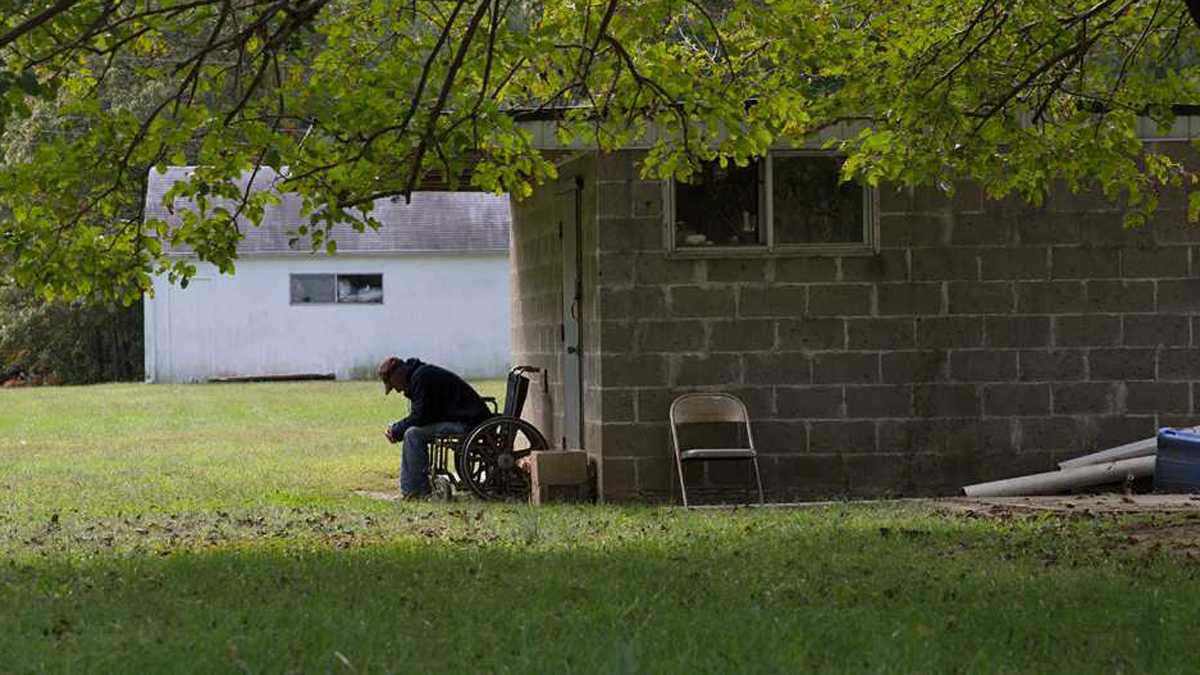NJ officials push to move hundreds of patients out of psychiatric hospitals

A resident sits outside of R&M guest home, a boarding home in Chesilhurst, New Jersey. Places like this are the 'go to' for mentally ill people who have no family and not enough money to rent an apartment.(Lindsay Lazarski/WHYY)
State officials are ordering New Jersey mental health providers to find placements for 430 patients waiting to be discharged from state psychiatric hospitals — or risk losing their funding. Providers have until May 1 to find places in community supportive housing for them.
The ultimatum was issued in a letter the Department of Human Services sent providers last month. It affects individuals in psychiatric hospitals who no longer meet the standard for involuntary commitment.
But Carolyn Beauchamp, president of the Mental Health Association in New Jersey, said that only means a patient is no longer a danger to himself or others.
“It doesn’t mean they don’t still have a mental illness. It doesn’t mean that they are ready to fit into the community and be in charge of what’s going on in a successful way,” said Beauchamp.
Providers say they need time to assess a patient’s entire history before they can take responsibility for them and find the right setting. A 2009 lawsuit settlement between a disability advocacy group and the Department of Human Services states patients must be discharged within four months of becoming eligible.
Joseph Young, executive director of Disability Rights of New Jersey, said it’s good that the state is holding mental health providers accountable.
“So the state is asking providers who’ve been assigned these people to assist and you’re not moving them out, what’s the reason for not moving them out,” said Young.
Critics say that putting a timeline on patient discharges is irresponsible — because it takes time to find the right setting and properly assess a person’s treatment needs.
WHYY is your source for fact-based, in-depth journalism and information. As a nonprofit organization, we rely on financial support from readers like you. Please give today.




